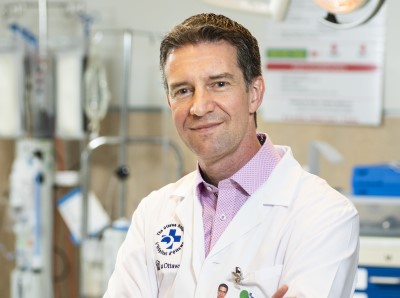 “For the first time we have real data that these different defibrillation strategies used by paramedics can improve patient outcomes after cardiac arrest.” -Dr. Christian VaillancourtThere’s no doubt about it – defibrillation saves lives. A randomized controlled trial published in the New England Journal of Medicine found that two different defibrillation strategies were associated with increased survival among out-of-hospital cardiac arrest patients whose hearts didn’t start after standard defibrillation.
“For the first time we have real data that these different defibrillation strategies used by paramedics can improve patient outcomes after cardiac arrest.” -Dr. Christian VaillancourtThere’s no doubt about it – defibrillation saves lives. A randomized controlled trial published in the New England Journal of Medicine found that two different defibrillation strategies were associated with increased survival among out-of-hospital cardiac arrest patients whose hearts didn’t start after standard defibrillation.
When the heart stops because of chaotic electrical activity called ventricular fibrillation, almost half of the time it stays stopped even after three shocks of standard defibrillation. When this happens, some paramedics will continue standard defibrillation, but success is low.
This was the first clinical trial to look at patient survival after standard defibrillation only (two pads on the person’s front), compared to two alternative strategies: vector-change (VC) defibrillation (one pad on the back, one on the front) or double sequential external defibrillation (DSED) (two defibrillators at once).
Of the 405 adults in the study, 30% of the DSED recipients, 22% of the VC recipients and 13% of standard defibrillation recipients survived to be discharged from the hospital. Dr. Christian Vaillancourt was a co-author on this study, which involved six Ontario paramedic services, including the Ottawa Paramedics Service.
“For the first time we have real data that these different defibrillation strategies used by paramedics can improve patient outcomes after cardiac arrest.” -Dr. Christian Vaillancourt co-author on the study, senior scientist and emergency medicine physician at The Ottawa Hospital, Research Chair in Emergency Cardiac Resuscitation at the University of Ottawa.
Authors: Sheldon Cheskes, P. Richard Verbeek, Ian R. Drennan, Shelley L. McLeod, Linda Turner, Ruxandra Pinto, Michael Feldman, Matthew Davis, Christian Vaillancourt, Laurie J. Morrison, Paul Dorian, Damon C. Scales.
Funding: This research was funded by the Heart and Stroke Foundation of Canada. All research at The Ottawa Hospital is also enabled by generous donations to The Ottawa Hospital Foundation.
The Ottawa Hospital is a leading academic health, research and learning hospital proudly affiliated with the University of Ottawa and supported by The Ottawa Hospital Foundation.
